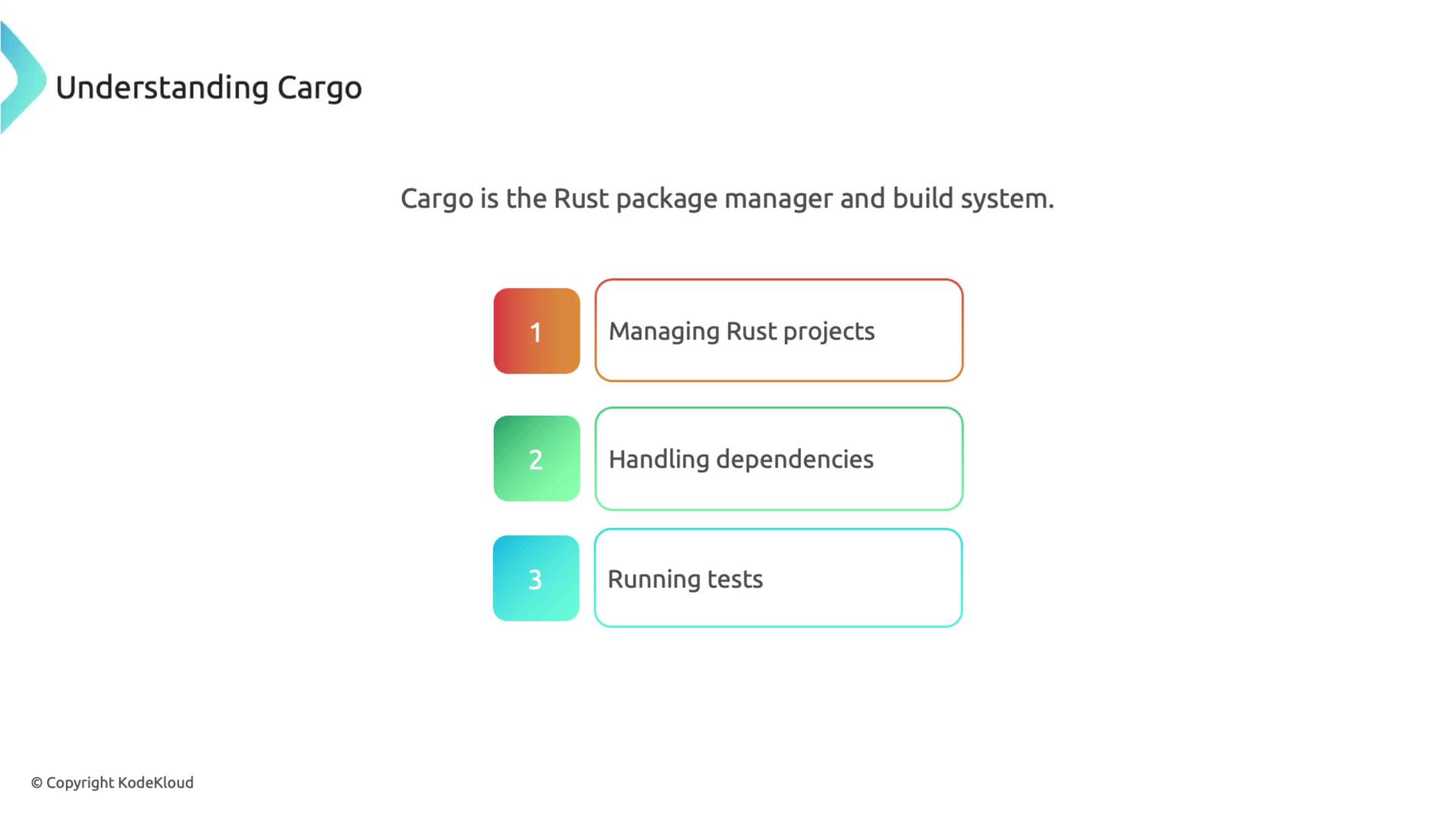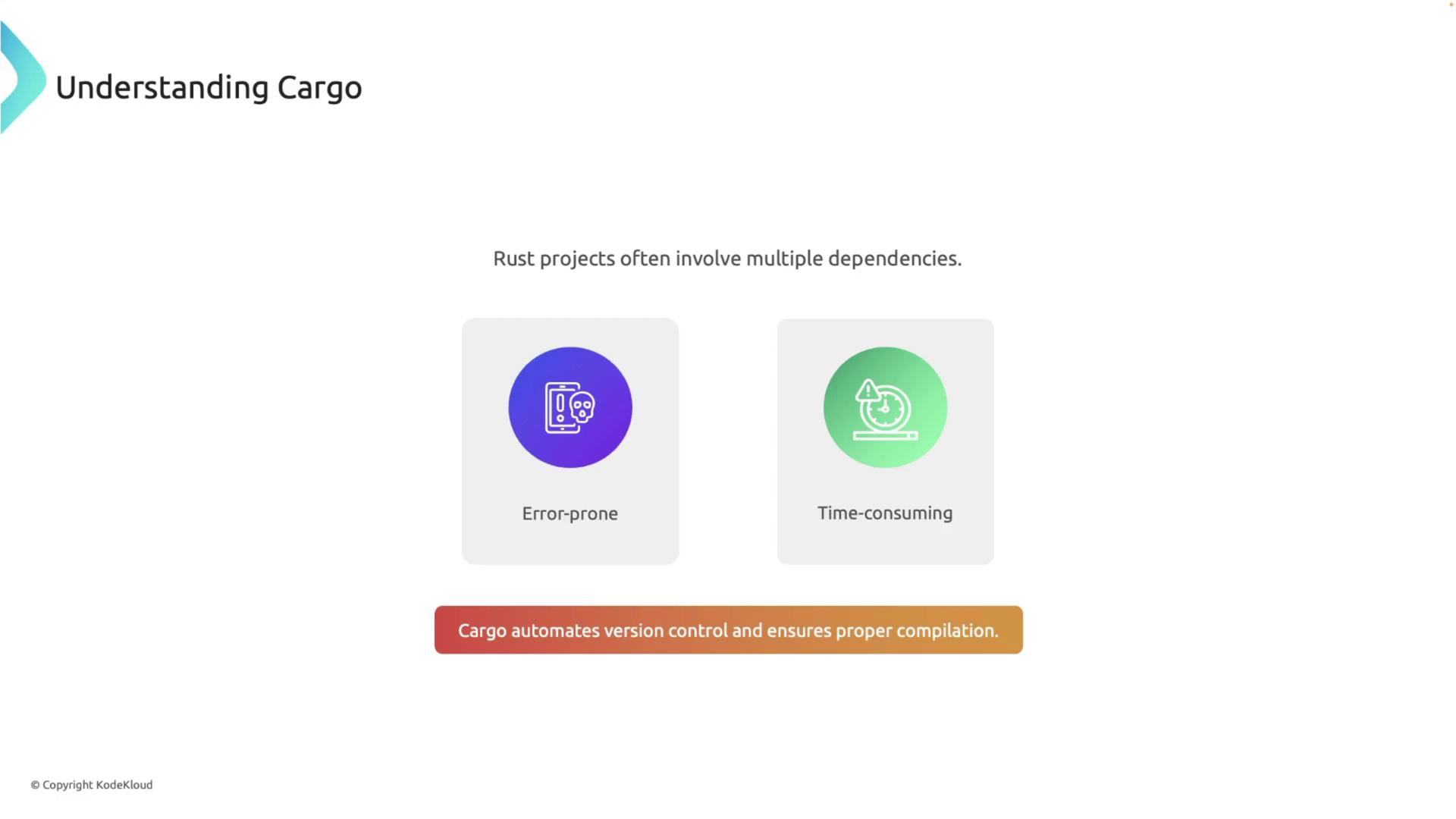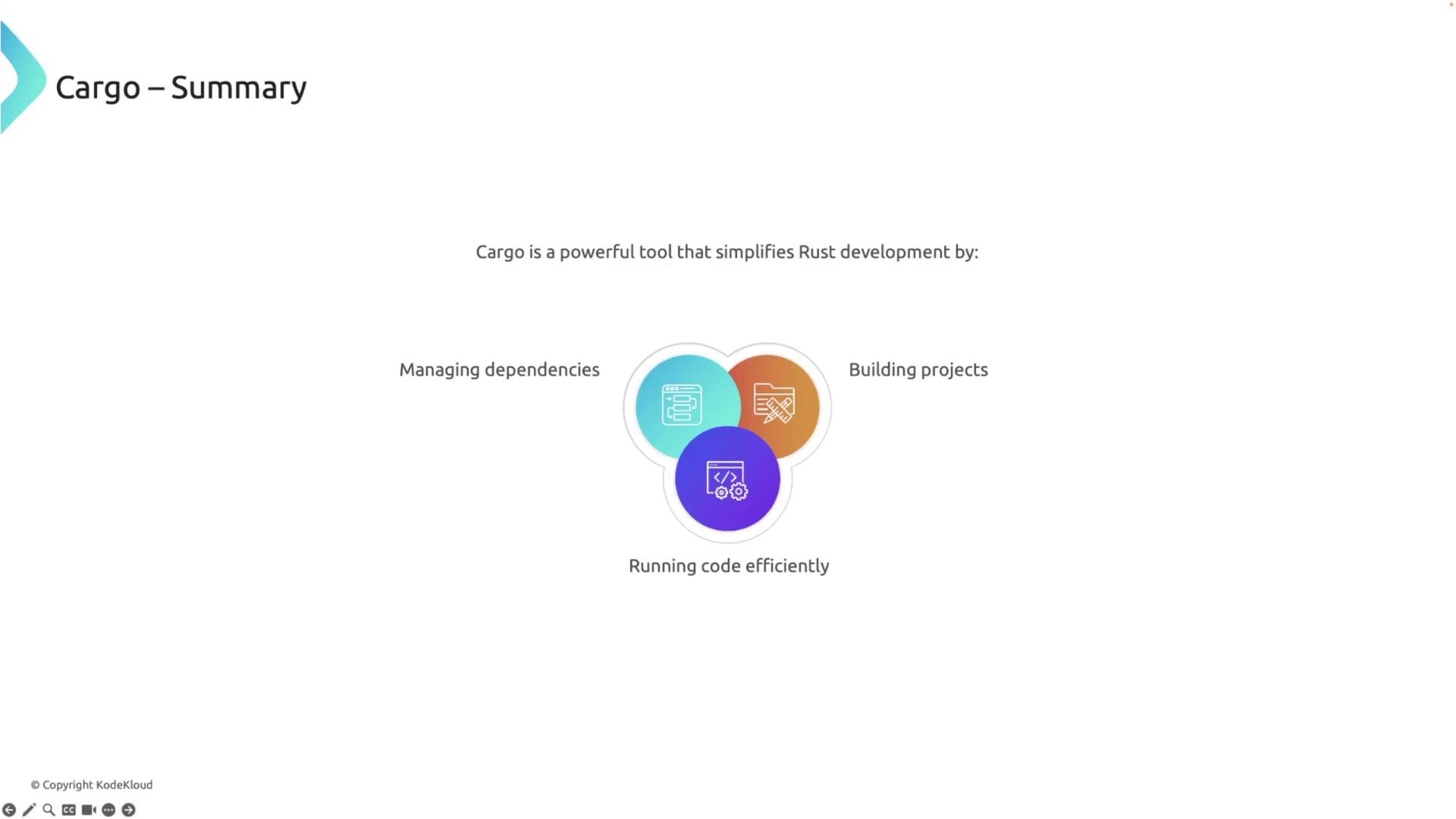Rust Programming
Getting Started with Rust
Introduction to Cargo
Cargo is the essential tool for managing Rust projects, serving as both the package manager and build system. It streamlines many aspects of Rust development—including project management, dependency resolution, testing, and more—all in one handy command-line utility.

Rust applications can quickly become complex with numerous dependencies. Manually managing these can be error-prone and time-consuming. Cargo automates this process, ensuring all libraries are at the correct versions and that your project compiles successfully.

Creating a New Rust Project
To begin leveraging Cargo, start by creating a new Rust project. Open your terminal, navigate to the directory of your choice, and execute the following commands:
cd path/to/your/directory
cargo new hello_cargo
This creates a new hello_cargo directory with a minimal Rust project setup. Next, navigate into the project directory:
cd hello_cargo
Inside, you'll find a src folder containing a main.rs file and a Cargo.toml file. The Cargo.toml file maintains your project's metadata and dependency list. Running a directory listing should display the following structure:
ls
# Output:
ls src/
# Output:
# main.rs
Examining the Cargo.toml File
Open the Cargo.toml file in your favorite text editor. This file, formatted in TOML, contains essential details about your project, including package metadata and dependency information. A typical configuration might look like this:
[package]
name = "hello_cargo"
version = "0.1.0"
edition = "2021"
# See more keys and their definitions at:
[dependencies]
The [package] section specifies the project name, version, and Rust edition, while the [dependencies] section is reserved for external libraries required by your project.
Reviewing the Generated "Hello, World!" Program
Upon project creation, Cargo generates a simple "Hello, world!" program. Open the src/main.rs file to see the generated code:
fn main() {
println!("Hello, world!");
}
This minimal program serves as a starting point for further development.
Building and Running the Project
Build your project by running the following command within the hello_cargo directory:
cargo build
This command compiles your project, placing the executable in the target/debug folder. To run the executable directly, use:
target/debug/hello_cargo
Alternatively, you can compile and execute in one step by running:
cargo run
This approach makes development faster by automatically rebuilding your project when changes are detected.
Checking Your Code for Errors
Cargo provides the cargo check command, which quickly verifies your code for errors without generating an executable. This is especially useful during development. For instance, if you accidentally omit a semicolon, running:
cargo check
might produce an error message like:
$ cargo check
Checking hello_cargo v0.1.0 (/Users/priyanka/Desktop/my_projects/hello_rust)
error: expected `;`, found `println`
--> src/main.rs:2:30
Quick Error Detection
Using cargo check during development can significantly speed up debugging by catching issues without the overhead of a full build.
Summary
Cargo simplifies Rust development by managing dependencies, automating builds, and running code efficiently. While small projects might run fine using rustc directly, Cargo's advantages become more prominent as your codebase grows and becomes increasingly modular.

For larger projects with multiple files and external dependencies, Cargo helps streamline the build process and provides a clear framework for project management. Its comprehensive approach makes it an indispensable tool for every Rust developer.
Watch Video
Watch video content
Practice Lab
Practice lab